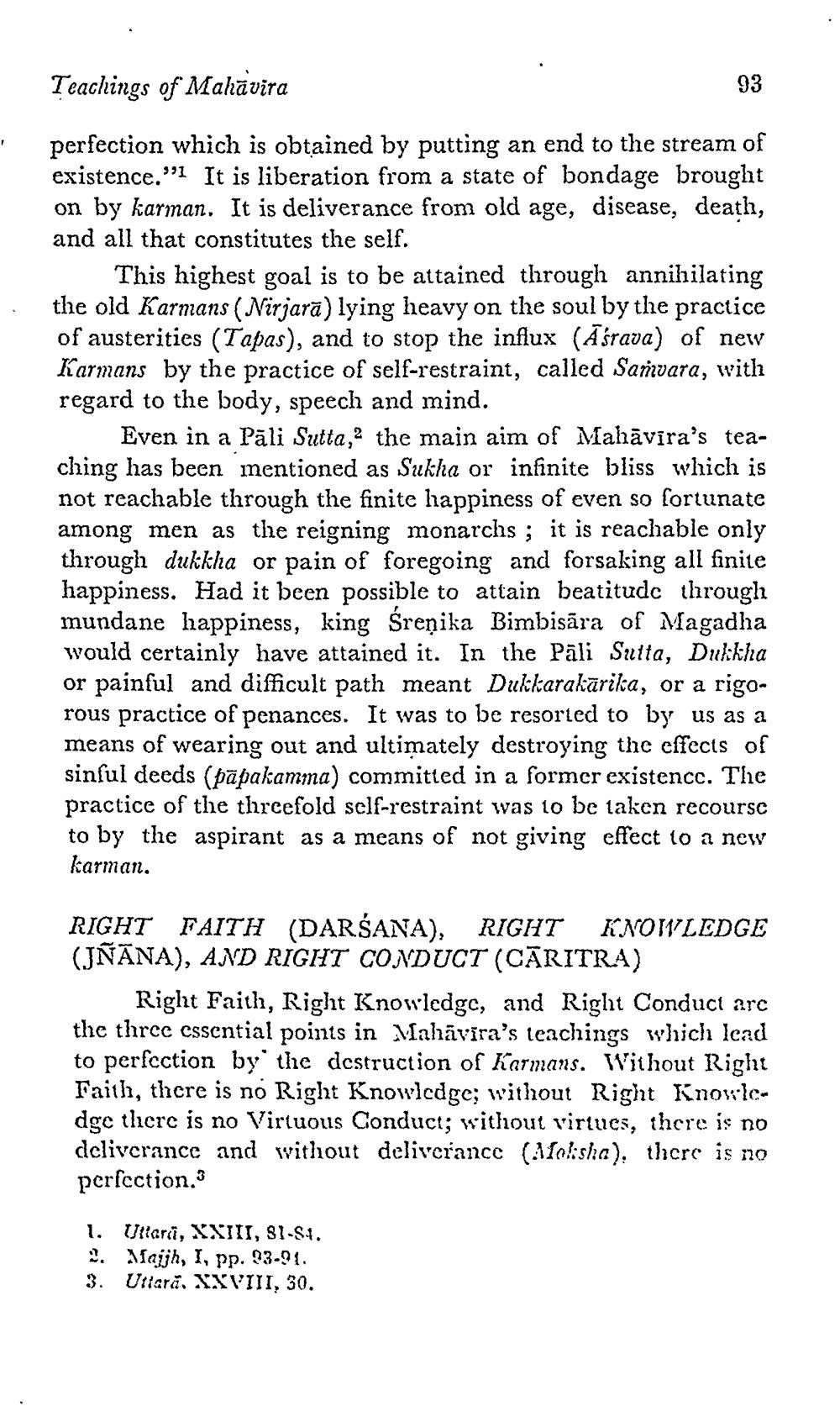________________
1
Teachings of Mahavira
perfection which is obtained by putting an end to the stream of existence." It is liberation from a state of bondage brought on by karman. It is deliverance from old age, disease, death, and all that constitutes the self.
This highest goal is to be attained through annihilating the old Karmans (Nirjarā) lying heavy on the soul by the practice of austerities (Tapas), and to stop the influx (Asrava) of new Karmans by the practice of self-restraint, called Samvara, with regard to the body, speech and mind.
93
Even in a Pāli Sutta, the main aim of Mahavira's teaching has been mentioned as Sukha or infinite bliss which is not reachable through the finite happiness of even so fortunate among men as the reigning monarchs; it is reachable only through dukkha or pain of foregoing and forsaking all finite happiness. Had it been possible to attain beatitude through mundane happiness, king Śreņika Bimbisāra of Magadha would certainly have attained it. In the Pāli Sutta, Dukkha or painful and difficult path meant Dukkarakarika, or a rigorous practice of penances. It was to be resorted to by us as a means of wearing out and ultimately destroying the effects of sinful deeds (papakamma) committed in a former existence. The practice of the threefold self-restraint was to be taken recourse to by the aspirant as a means of not giving effect to a new karman.
RIGHT FAITH (DARŚANA), RIGHT (JÑÄNA), AND RIGHT CONDUCT (CĀRITRA)
1. Uttara, XXIII, 81-84.
2. Majjh, I, pp. 93-91.
3.
Uttara, XXVIII, 30.
KNOWLEDGE
Right Faith, Right Knowledge, and Right Conduct arc the three essential points in Mahavira's teachings which lead to perfection by the destruction of Karmans. Without Right Faith, there is no Right Knowledge; without Right Knowledge there is no Virtuous Conduct; without virtues, there is no deliverance and without deliverance (Moksha), there is no perfection.3




